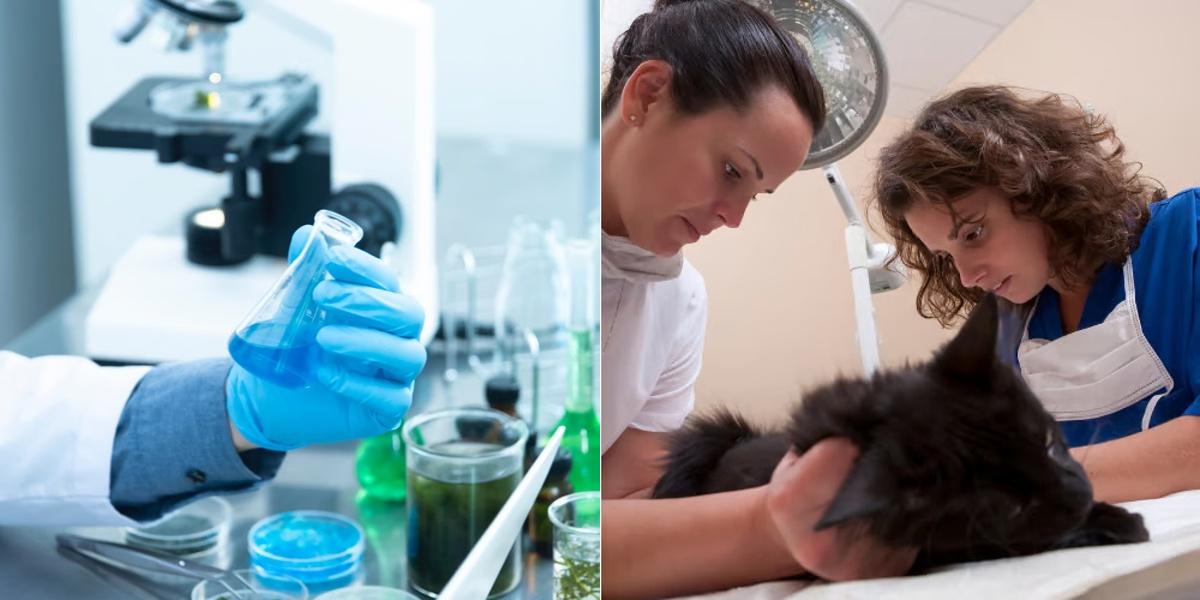Sterile Processing Technician vs Veterinary Assistant

Key Points:
- Sterile Processing Technicians focus on sterilizing medical equipment; Veterinary Assistants provide basic care for animals and support veterinarians.
- Sterile Processing Technicians typically earn a higher average salary than Veterinary Assistants.
- Both jobs have good job prospects.
- Sterile Processing Technicians usually require a formal training program, while Veterinary Assistants may have more flexible training options, including online and in-person programs.
- Sterile Processing Technician training programs are generally more expensive and take longer to complete compared to Veterinary Assistant training programs.
Are you considering a career in the healthcare industry? Do you have a passion for animals and want to work in a veterinary setting? If so, you may be interested in becoming either a Sterile Processing Technician or a Veterinary Assistant. While both professions are rewarding and offer opportunities for growth, there are some key differences between the two.
Sterile Processing Technician:
To become a Sterile Processing Technician, you typically need a high school diploma or equivalent. Some employers may require additional training or certification in sterile processing. There are several educational pathways you can take to become a Sterile Processing Technician, including:
- Completing a certificate or diploma program in sterile processing
- Pursuing an associate degree in surgical technology or a related field
During your education and training, you will learn about infection control, sterilization techniques, and medical terminology. You may also have the opportunity to gain hands-on experience through internships or clinical rotations.
Veterinary Assistant:
The educational requirements for Veterinary Assistants vary depending on the employer and state regulations. Some employers may only require a high school diploma or equivalent, while others may prefer candidates with formal training or certification. There are several options for obtaining the necessary education and training to become a Veterinary Assistant, including:
- Completing a certificate or diploma program in veterinary assisting
- Pursuing an associate degree in veterinary technology
In these programs, you will learn about animal care, anatomy, physiology, medical terminology, and veterinary office procedures. You may also have the opportunity to gain practical experience through internships or externships at veterinary clinics or hospitals.
Sterile Processing Technician vs Veterinary Assistant: Career Outlook and Salary
Sterile Processing Technician:
According to the Bureau of Labor Statistics (BLS), the employment of Sterile Processing Technicians is projected to grow 7 percent from 2019 to 2029, faster than the average for all occupations. The demand for healthcare services and the need for sterile instruments and equipment are expected to drive job growth in this field. As of May 2020, the median annual wage for Sterile Processing Technicians was $38,740.
Veterinary Assistant:
The employment of Veterinary Assistants is projected to grow 16 percent from 2019 to 2029, much faster than the average for all occupations, according to the BLS. The increasing pet population and the demand for veterinary services are expected to contribute to job growth in this field. As of May 2020, the median annual wage for Veterinary Assistants was $28,590.
Final Thoughts
Both Sterile Processing Technicians and Veterinary Assistants play important roles in the healthcare industry. While Sterile Processing Technicians focus on ensuring the cleanliness and safety of medical supplies and equipment, Veterinary Assistants provide support in caring for animals and assisting with veterinary procedures. The education and training requirements for each profession vary, with Sterile Processing Technicians typically needing a certificate or diploma in sterile processing and Veterinary Assistants often completing a certificate or associate degree program in veterinary assisting or technology. The career outlook for both professions is positive, with job growth expected in the coming years. Ultimately, the choice between becoming a Sterile Processing Technician or a Veterinary Assistant depends on your interests, skills, and passion for either healthcare or animal care.
Explore Dreambound's program accessibility across different locations. Immerse yourself in these blogs for a detailed exploration of the two vocations, unraveling specific requirements and gaining insightful perspectives on how to embark on your journey:

Sunshine is a member of the School Growth team at Dreambound, where she assists students and schools with their billing and onboarding needs. She is a licensed mechanical engineer. Outside of work, she enjoys road trips with her family, discovering cozy cafes, and exploring her love for art.




